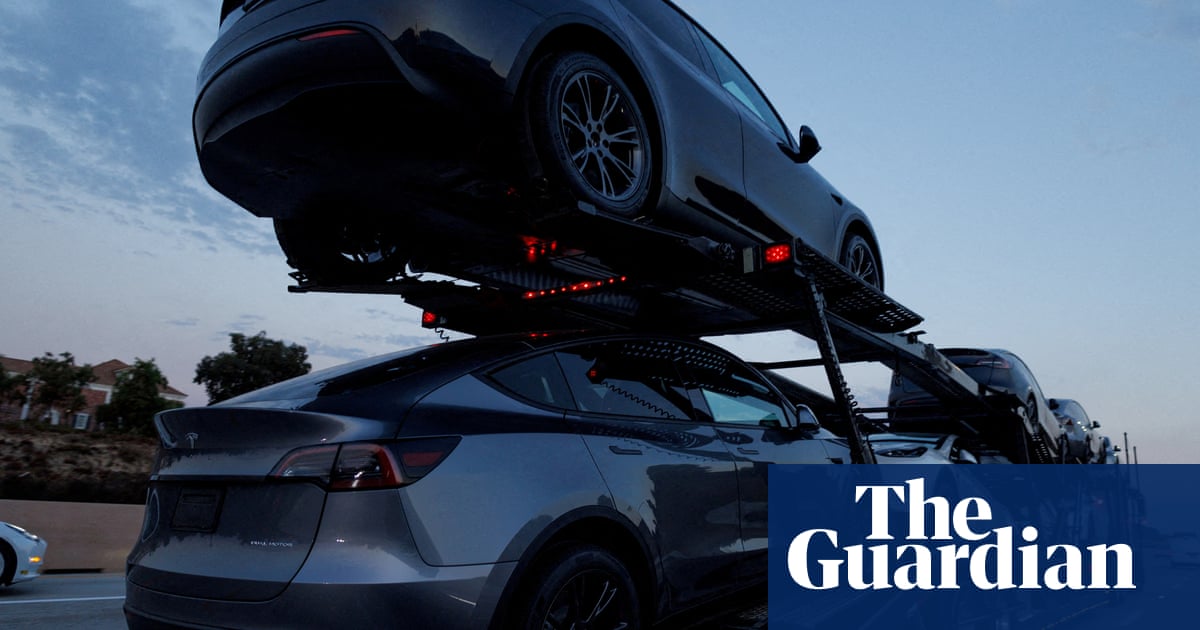Sales of new Tesla cars slumped by more than a third in the UK last month as the electric carmaker lost ground to China’s BYD and other rivals, amid apolitical backlashagainst Tesla’s billionaire boss, Elon Musk.
Tesla sold 2,016 vehicles in the UK in May, down from 3,125 in May 2024 – a 36% drop, according to the monthly snapshot from the Society of Motor Manufacturers and Traders (SMMT).
The Chinese carmaker BYD’s car sales in the UK jumped by 407%, from 596 in May last year to 3,025 this May. It sells hybrids as well as pure electric cars. BYD first overtook Tesla in January.
Tesla has sold 15,002 cars in the UK so far this year, down 7.8% from 16,272 in the same period last year.
Tesla sales have fallen in some of its biggest markets this year and there have beenpolitical protests at some of its showrooms. It is also coming up against fierce competition from rivals including BYD.
New car sales overall in the UK increased by 1.6% last month to 150,070 vehicles. It was the best May performance since 2021 but still 18.3% lower than before the Covid pandemic in 2019, and only the second month of growth this year, reflecting brittle consumer confidence and economic turbulence, the SMMT said.
Demand was driven by corporate fleets and other businesses, responsible for almost two-thirds of car registrations, while interest from private buyers fell for the second consecutive month, down by 2.3%. There were double-digit declines in deliveries of petrol and diesel cars, down by 12.5% and 15.5%, while demand for the latest electric models increased dramatically to take a combined 47.3% market share.
Uptake of hybrid electric vehicles (EVs) grew by 6.8% to 20,351 cars, while plug-in hybrid EVs rose by nearly 51% to 17,898. Registrations of battery EVs increased by more than a quarter, accounting for 21.8% of the market, as car manufacturers sought to entice buyers with incentives.
Colin Walker, the head of transport at the non-profit Energy and Climate Intelligence Unit, said the UK’s zero emission vehicle (ZEV) mandate – aset of government regulations designed to boost the number of EVs on the road – “continues to do its thing, increasing competition between manufacturers, driving down prices and driving up sales”.
Sign up toBusiness Today
Get set for the working day – we'll point you to all the business news and analysis you need every morning
after newsletter promotion
In terms of EV sales in the UK so far this year, Tesla is on the verge of losing its number one spot to Volkswagen, which has increased its EV sales by 201%, Walker said, citing analysis by the thinktank New AutoMotive. Other manufacturers, such as Ford, Renault and Peugeot, have also posted big increases as they switch to electric cars. BYD, the only Chinese manufacturer in the top 10, has achieved 261% growth.
